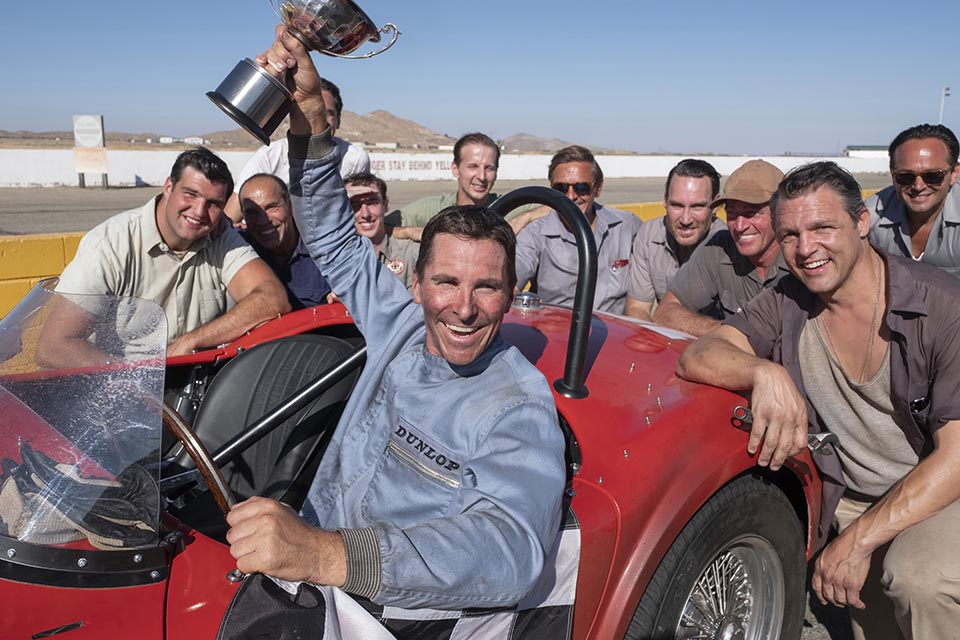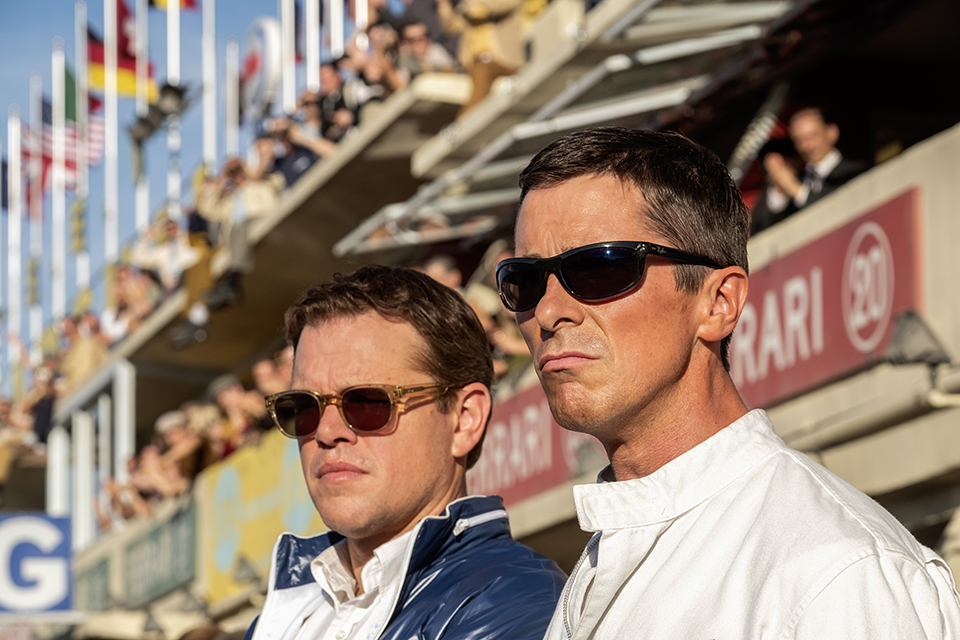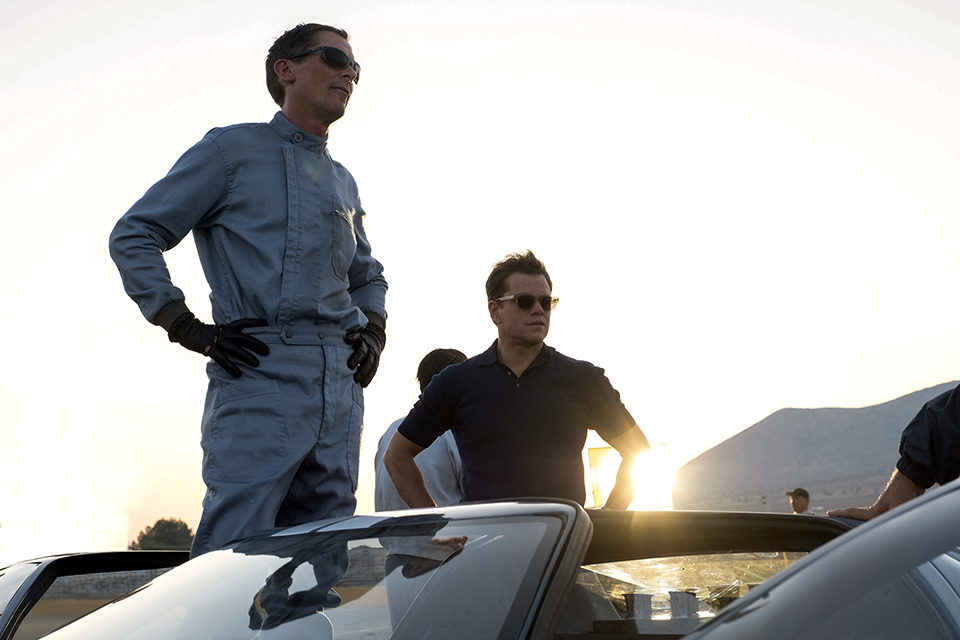Interview: director James Mangold talks Le Mans ‘66, Logan and Bale’s Brummie accent
The acclaimed director speaks to ShortList about his latest movie and more


Get exclusive shortlists, celebrity interviews and the best deals on the products you care about, straight to your inbox.
You are now subscribed
Your newsletter sign-up was successful
James Mangold is a director whose movie CV is the envy of most. Cop Land, Girl Interrupted, 3:10 To Yuma to name but a few. The Wolverine, Logan and Walk The Line to name some more.
He’s known to jump genres and his latest movie, Le Mans ’66, is an epic, crowd-pleasing true tale about the rivalry between Ford and Ferrari (its US title is Ford Vs Ferrari) for the coveted Le Mans endurance championship.
Starring Matt Damon and Christian Bale, their chemistry on screen together is a joy to watch, but it’s the race scenes that steal the show.
“I wanted that connection to the road to be palpable. I had never been a big motor-racing guy and I felt it had come from the fact that I thought motor racing was kind of boring on television,” says Mangold.
“We made a kind of commitment to do everything for real and, for the most part, we did. Even when Christian [Bale] isn’t driving, he is still riding in a car at a hundred miles an hour, and there is a driver operating it from the roof or the side.”

This ‘real-ness’ is something that Mangold firmly believes in and even though he prepped by watching racing movies (“we watched all the racing films, there are only a handful”), he didn’t want what had been released previously to cloud his vision.
“If you watch movies that are the same genre as your movie, then you tend to do one of two things: you get to a point where you are imitating or rejecting that movie. I don’t want to do that. I don’t find it to be very useful.
Get exclusive shortlists, celebrity interviews and the best deals on the products you care about, straight to your inbox.
“When you watch a movie that is about your movie then you tend to make a movie about movies. Meaning, how many Westerns did John Ford watch when making The Searchers? I don’t think many.”
Visiting Le Mans
To get inspiration, though, he did travel to the real Le Mans and shot some scenes there.
“The track was wholly created by us because it doesn’t exist anymore but we shot in the village. It’s beautiful and also reminds you more than ever of what a small place this is that the world would descend upon for one week a year for this race,” says Mangold.
In 1966, the crowd would have witnessed Ken Miles (Bale) try and take on the might of Ferrari in a specially-made Ford. What they wouldn’t have heard, unlike the races of today, is Ken Miles muttering to himself in a distinctive Midlands accent.
“Christian had this great wadded-up piece of paper that he had written all these ‘Brummie-isms’ on. And when we were driving he would literally go: ‘how about I try, your face is redder than a smacked arse’. And I was like, ‘go for it!’”
While this may not sound like the serious Bale we have seen on screen of late, Mangold who has been friends with the actor for over 20 years believes this role is much closer to the real Bale.
“When you know him and then you see most of the roles he is known for, they are fairly grim, terse characters. And the person is so effervescent and embracing of life.
“We saw a little of that in The Fighter, I have seen that sometimes in other movies, but I really wanted to see that here. I really wanted him to let loose and a little bit closer to his own native tongue.”

Le Mans ’66 may feel like a triumphant movie but it’s certainly no shiny advertisement for the two car companies. There’s in-fighting both on the track and in the boardroom, something Mangold was keen to highlight - even if it was to the detriment to the access he got.
“We saw as much as Ford and Ferrari would let us see, but we also didn’t get everything,” says Mangold.
“We didn’t secure their full cooperation because we wanted to hold on to our autonomy. I didn’t really want to make a movie that would become a promotional tool for both these companies. I think both were probably taken aback when they read the script and they weren’t in a more heroic position in the film.
“But I do think both companies will only have their reputation further lustred by the movie, in the sense that, warts and all, you are reminded that these companies are part of our automotive history. But to try and do a white wash would be impossible, especially given how the race turns out.”
Controlling Logan
Autonomy is key for Mangold and it’s surprisingly something he got when he ventured into the marvellous world of Marvel. Given how close Disney and Kevin Feige guard the characters, as Wolverine was still property of 20th Century Fox, it may have actually helped him tell the stories he wanted to.
“I got left 100% alone on Logan. We made Logan for a price and [Fox] knew it was rated R. Hugh [Jackman] and I are good buds and, one way or another, no one bothered us with the picture.
“By the time we finished the movie, Fox was so excited with what they were seeing and the potential that we never had any interference from them.”
To get that independence, though, is a balancing act. Mangold likens the story of Le Mans ‘66, with its constant clashes between the suits, the drivers and the makers of the cars, to the movie world and reveals just how much work is done between boardroom and the big screen.
“As a film director, you are a bridge between the highly created trenches of the film and filmmaking, boardrooms and corporate settings and the press and publicity - where the movie can be chewed up and spat out, accepted or rejected.
“I have many peers who were with me when I was making Cop Land and they have vanished. You are conscious of your own survival as a filmmaker is dependent on maintaining a healthy dialogue with an audience, an audience that pays.
“You just try and do that in the most heartfelt damn way possible.”
As we left our screening of Le Mans '66 with a lump in our throat and something in our eye, for this movie at least, Mangold has done just that.
Le Mans ‘66 is in cinemas now, courtesy of 20th Century Fox.
- Sign up to our newsletter to get an exclusive ShortList from James Mangold - where he reveals his five filmmaking tips.

As Content Director of Shortlist, Marc likes nothing more than to compile endless lists of an evening by candlelight. He started out life as a movie writer for numerous (now defunct) magazines and soon found himself online - editing a gaggle of gadget sites, including TechRadar, Digital Camera World and Tom's Guide UK. At Shortlist you'll find him mostly writing about movies and tech, so no change there then.